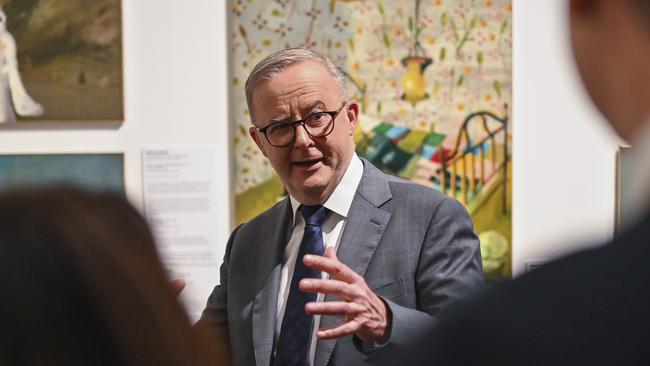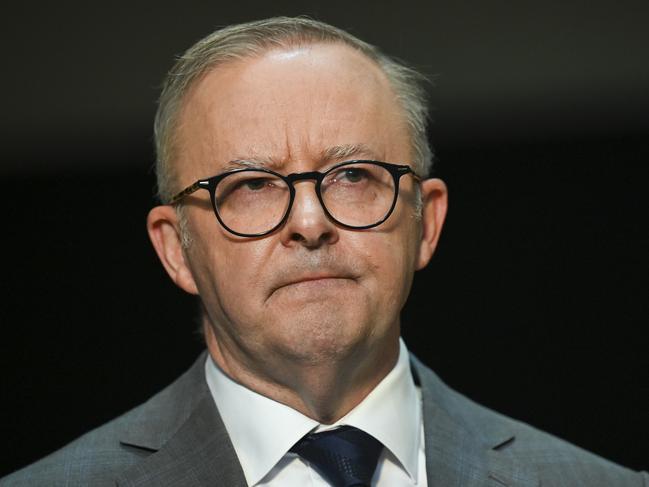Prosperity to fall with businesses blindsided by Indigenous voice to parliament hoax


They simply have not done the work to discover that the voice proposal is totally different to other environmental, social, and governance issues because it will slow down government decisions, making investment in Australia far more complex.
Over the weekend, I learned of the boardroom malaise partly as a result of an email from one of Australia’s best performing and admired corporate directors.
In simple terms, he believes that sentence three of the referendum proposal gives the power to the parliament “to make laws with respect to matters relating to the Aboriginal and Torres Strait Islander Voice, including its composition, functions, powers and procedure”
On the surface the corporate leader is right because the above words in the third sentence appear to give the Australian parliament wide powers over the voice body.
If that was true my detailed description of how the budget and other federal government deliberations are set to be made incredibly complex is simply wrong because parliament would make the rules.
Sadly, I am not wrong first because my views are backed by top constitutional lawyers with countless cases under their belt, and second because when you look at the three proposed voice referendum sentences in combination, the message in the third sentence is a misleading hoax.
When corporate chief executives and directors read the three sentences for themselves, and not rely on agenda-driven advisers, they will understand why the voice is a danger to prosperity in Australia because it slows decision making.
I repeat the message of last week.
The voice slow down tragedy has nothing to do with desirability of recognising Aboriginal and Torres Strait Islander peoples in the constitution – an action where most of the population, including me and the corporate sector, are in favour.
I would argue that the ‘hoax’ in the third sentence is in danger of misleading both Aboriginal and Torres Strait Islander and non-indigenous peoples.
While the third sentence words appear to give the Australian parliament wide powers over the voice body, that sentence is qualified with the caveat “subject to this constitution”.

That means parliamentary powers are clearly subservient to the sentence which states “the Aboriginal and Torres Strait Islander voice (body) may make representations to the parliament and the executive government of the Commonwealth on matters relating to Aboriginal and Torres Strait Islander peoples”.
And the “subject to this constitution” parliamentary power qualification extends beyond the referendum powers to the whole constitution and its case law.
A large section of that case law arises out of section 51 where our parliament was given a series of specified powers but those powers, like sentence three, were “subject to this constitution”.
To illustrate; the first power in section 51 gave the parliament power over “trade and commerce with other countries, and among the states” but that became subservient to section 92 that states that trade within the Commonwealth must be free.
And so, just as the Australian parliament can’t make laws that impact the free trade provision in the constitution so the parliament will not be able to make laws that interfere with the right of the Aboriginal and Torres Strait Islander peoples to make representations to the executive or the parliament.
One of Australia’s most senior constitutional lawyers uses this analogy: if the voice powers are equated with the development of a large building, the Australian Parliament’s powers are limited to matters like deciding on the door handles.
Of course those views will need to be tested in the High Court but the “case law” on issues like this is well established.
And we should remember that it’s not just non Aboriginal and Torres Strait Islander peoples who are being hoaxed by the misleading third sentence.
Many indigenous people will think the voice body is simply an arm of the Australian parliament akin to many others.
However, among the leaders of the Aboriginal and Torres Strait Islander peoples and their legal advisers are those that know that the words“subject to this constitution” destroys wide parliamentary power.
They could be excused for laughing at the ignorance of non-indigenous peoples.
I received some 650 comments on last week’s commentary and a number of them raised issues that I had not thought of but which drove me to go back to top constitutional lawyers to determine the likely constitutional situation.
The voice will almost certainly be able to make representations about the appointment of High Court judges.
Accordingly, the voice body may push hard for suitably qualified Aboriginal activists to be made High Court judges.
We may follow the US where the appointment of High Court judges becomes a political issue.
Secondly, in our society we have been pressing for gender equality.
Sections of the Aboriginal and Torres Strait Islander communities have a different culture with functions divided between male and female.
This issue was the subject of legal debate in the Hindmarsh Island case involving alleged “secret women’s business”
In my commentary I suggested that 300 indigenous nations would seek representations in the Voice but we might need to have a male and a female from each group.
Our corporate boards have not done the work and simply taken the words in the third sentence at face value after being reassured by the Prime Minister this was not a major change to the way the parliament and the community will make decisions.
However, I reject the allegations of one reader who suggested that a number of named large companies actually stood benefit financially from the voice and their advocacy was motivated by financial issues.
But it was a clear sign of what may be ahead.






Many Australian corporate boards are classifying their attitudes to the Indigenous voice to parliament referendum in the same basket as matters that come under the ESG banner.